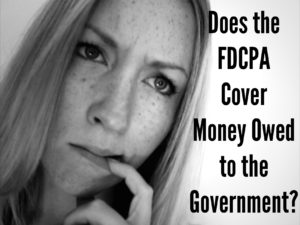By: Robert J. Nahoum
THE PROBLEM:
You’ve been getting endless debt collection calls from a debt collection agency trying to collect a government resulting from a speeding ticket, a housing code violation, a criminal fine or even an overdue library book penalty. The debt collector has been harassing you with incessant calls, false threats and misleading information. Can you sue the debt collector for this abusive conduct?
THE RULE:
Federal debt collection laws, known as the Fair Debt Collection Practices Act (FDCPA for short), regulates the conduct of third party debt collectors. The FDCPA generally prohibits debt collectors from using abusive debt collection tactics that are false, misleading and harassing.
If a debt collector violates the FDCPA, you can sue for statutory damages up to $1,000.00, actual damages (like pain and suffering) and the debt collector may have to pay for your attorney. The FDCPA gives consumers the power to swing the pendulum in the other direction and call out the debt collector for violating your rights as a consumer.
A “debt†as defined by the FDCPA limited to “any obligation or alleged obligation of a consumer to pay money arising out of a transaction in which the money, property, insurance or services which are the subject of the transaction are primarily for personal, family, or household purposes, whether or not such obligation has been reduced to judgment.â€
The weight of authority interpreting this question (whether government fines are “debts†for FDCPA purposes) have ruled that a fine does not stem from a “consensual transactionâ€, and thus is not a debt under the FDCPA. A fine is a penalty imposed for violating a law or regulation not than the result of a consensual transaction.
THE TAKE AWAY:
Municipal governments have more and more been outsourcing the collection of fines and penalties. Â Unfortunately for consumers, the FDCPA is not available as a protection for consumers who have been harassed by abusive debt collectors collecting municipal fines and penalties.
While the FDCPA is not protecting you, you should at a minimum make the municipality aware and accountable for the conduct of its agents. Make complaints and call your government representatives to let them know what is happening.
If you need help settling or defending a debt collection law suit, stopping harassing debt collectors or suing a debt collector, contact us today to see what we can do for you.
The Law Offices of Robert J. Nahoum, P.C
(845) 232-0202
www.nahoumlaw.com
info@nahoumlaw.com

